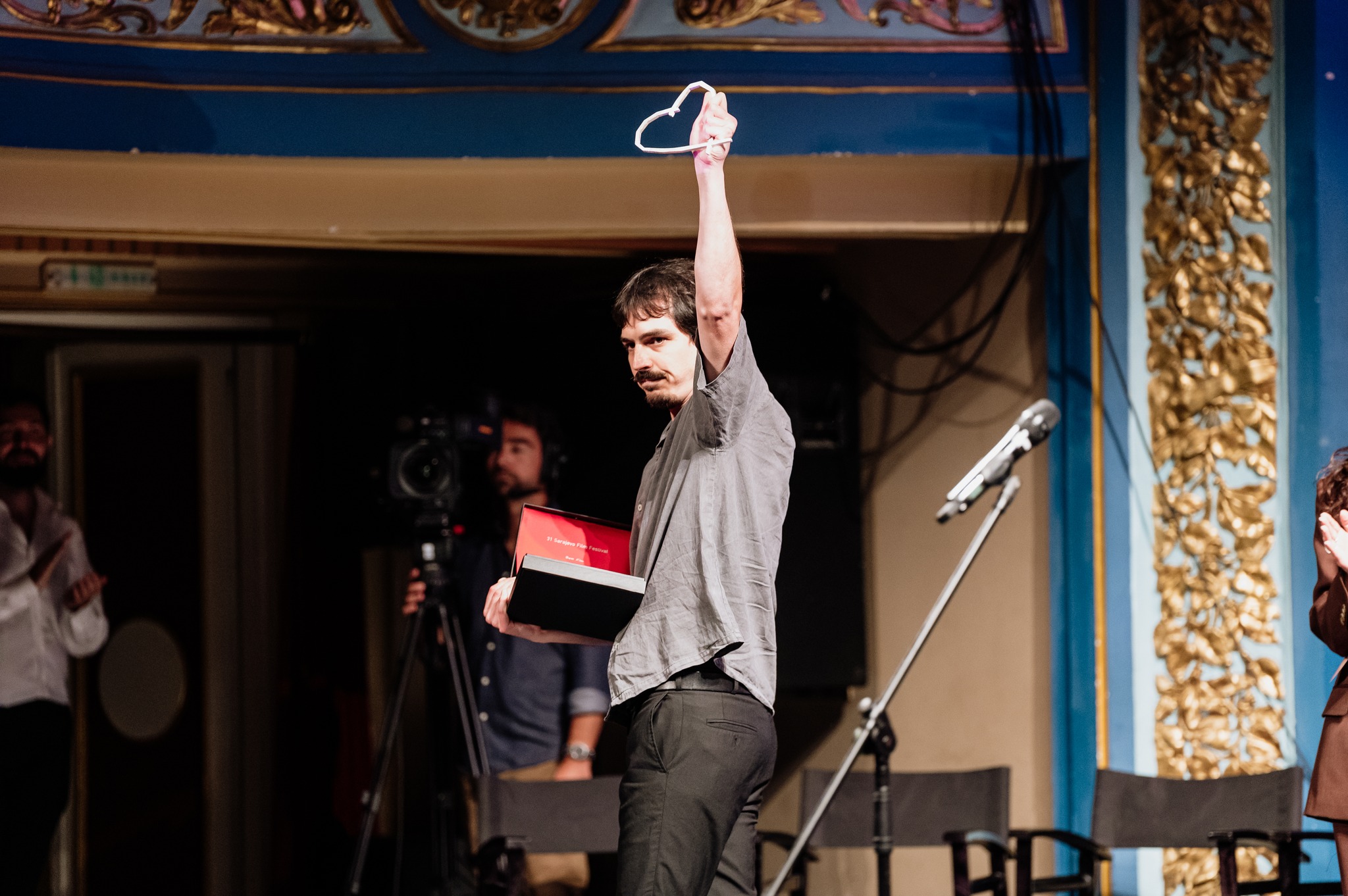Sarajevo Film Festival’s 31st edition has come to a close, with Serbian director Stefan Dordevic’s Wind, Talk to Me awarded the Heart of Sarajevo for Best Feature film — part of a wider trend for films with documentary elements netting top prizes internationally. The festival, founded during the siege of Sarajevo in the Bosnian War, has always maintained a focus on processing history, even as it brings a glittering roster of celebrities to the red carpet, and in a tumultuous era of resurgent authoritarianism and wars raging on several global fronts, the festival’s programme was particularly confronting and political this year. The sensitive, mysterious nature of Dordevic’s feature, an autobiographical reflection on the death of his mother, offered a more gentle respite for audiences — but it was no less concerned with grief and difficult existential realities, as it explored nature’s capacity for renewal.
The main festival jury, which was headed by Ukrainian filmmaker Sergei Loznitsa, awarded Best Director to Serbia-born, Romania-based Ivana Mladenovic, whose satirical, wild anti-romance Sorella di Clausura was a defiantly punk, outrageous and genre-crossing lampoon of modern Romania and its raging inequalities and frustrations. Loznitsa’s acclaimed new drama Two Prosecutors, which screened in the In Focus programme, is an altogether more sober affair, revisiting Soviet-era repression as a warning about its echoes in the present.
Star power was high at the festival, annually the most glamorous of the Balkan region, with no less than five big names from the film world — Paolo Sorrentino, Michel Franco, Ray Winstone, Ilya Khrzhanovskiy and Willem Dafoe — in the city to deliver on-stage masterclasses, and Swedish actor Stellan Skarsgard also honoured with a Heart of Sarajevo for his cinema contribution. There was a large retrospective tribute dedicated to Sorrentino, with ten key features of the Italian director’s extensive career, including Il Divo and The Great Beauty, and a three-film tribute, too, to Ilya Khrzhanovskiy. The Moscow-born filmmaker, the artistic director of the Babi Yar Holocaust Memorial Center in Kyiv until recently, is best-known for his controversial DAU series, part immersive installation and part behavioural project where the cast lived on-set within a recreation of the Soviet era.
Elsewhere, repressive states in Europe were the backdrop for a number of highlights, including White Snail by Elsa Kremser and Levin Peter, in which a transformative relationship starts in the unlikely setting of a morgue in Belarus, as citizens flee rising volatility; In Hell With Ivo, a portrait of Ivo Dimchev, a queer musical artist defying conservatism in Bulgaria; and Ketevan Vashagashvili’s 9-Month Contract, challenging the stigma around surrogate motherhood and systemic exploitation by unregulated agencies in Georgia. The conflicts and humanitarian crises in Ukraine and Gaza figured large in a number of powerful films, too, including Yegor Troynovsky’s Cuba & Alaska, Dmytro Hreshko’s Divia, Sepideh Farsi’s Put Your Soul On Your Hand and Walk, and Kamal Aljafari’s With Hasan in Gaza.
Serbia was not the only Balkan nation to make a big impact this edition, as it has been a strong year in cinema so far for the entire region. Hana Jusic’s God Will Not Help, a brooding and ominous vision of female rebellion set in the Croatian mountains in the early 1900s, was another highlight from the feature competition. Bosnia-born Dane Komljen’s mesmerising, spectral experience Desire Lines, Ivan Salatic’s magnificent, original take on Montenegrin freedom fighting and exile Wondrous is the Silence of My Master, and Igor Bezinovic’s irreverent Rotterdam-winner Fiume o Morte!, re-envisioning the reign in Croatia of self-styled dictator Gabriele D’Annunzio as a collaborative antidote to strongman personality cults, also screened. This visually and conceptually daring, politically engaged work shows that new Balkan cinema is brimming with talent, and armed with bracing visions for the future.




